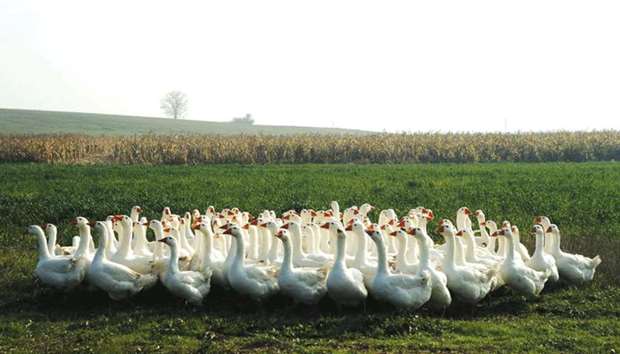Farmers are resorting to mediaeval methods to combat rural crime, which has risen to its highest level in four years, an increase being blamed on organised criminal gangs and policing cuts.
Offences against farmers and other rural businesses cost an estimated £44.5mn last year, an increase of 13.4% from 2016, according to insurer NFU (National Farmers Union) Mutual.
The biggest increase was in Wales, up 41%, followed by the Midlands, up 32%, and the southeast, up 30%.
Only Scotland and northeast England showed falls compared with 2016.
The most targeted items were quad bikes/all-terrain vehicles, followed by tools and machinery.
However, activities such as hare coursing and fly-tipping can also be devastating to farmers, injuring livestock and contaminating the environment.
Tim Price, the rural affairs specialist at NFU Mutual, said: “There’s no doubt that rural crime has changed massively in the last decade.
“Ten years ago it was largely unstructured, stealing from the next village, trying to sell it at a car boot sale.
“Now we are seeing organised criminals who have links to drugs and the county lines issues, money laundering, even in some cases, human trafficking.”
In an attempt to frustrate the criminals, farmers are incorporating mediaeval measures into their security, according to the 19th Rural Crime report.
It says farmers are putting up earth banks and dry ditches to block criminals who use 4x4 vehicles to get on to farm land.
In Kent, one farmer has spent 18 months surrounding his 4,500 acres of land with ditches and barriers to deter criminals from hare coursing and fly-tipping.
Others are using animals including geese, llamas and dogs as a low-tech alarm system, much as landowners did hundreds of years ago.
NFU Mutual, which calculated figures based on its claims data, said that agricultural vehicle theft accounted for 13% (£5.9m) of the total cost of rural crime.
In many cases, organised gangs were taking expensive machinery and shipping it across the world, in some cases winching it on to a vehicle and taking it straight to a port.
There have also been cases where loaders have been stolen and used to smash into village shops to steal cash machines.
Price said that as thieves had become more sophisticated, police forces had reduced resources because of budget cuts.
The impact, he said, was not just the cost, which can be recovered by insurance, but disruption to farmers’ work and fear of being targeted again.
“The knowledge that people are hanging about watching homes and farms, what machinery they’ve got, that really does cause a lot of worry [among farmers],” said Price. “We’ve had cases where people have decided to stop using livestock or stop use of fields because the mental anxiety someone will target them is so great.”
The estimated cost of livestock theft last year reported to NFU Mutual was £2.4mn.
Thefts of large numbers of lamb have raised concerns that stock is being stolen for slaughter and processing outside regulated abattoirs before illegally entering the food chain.
Guy Smith, the NFU deputy president, said that crime is “one of the most pressing, impactful and devastating issues farmers are dealing with at the moment”.
In response, the union has launched a dedicated anonymous rural crime reporting line with Crimestoppers UK.

Farmers are using animals such as geese and llamas u2013 as well as dogs u2013 as a low-tech alarm system, much as landowners did hundreds of years ago.
